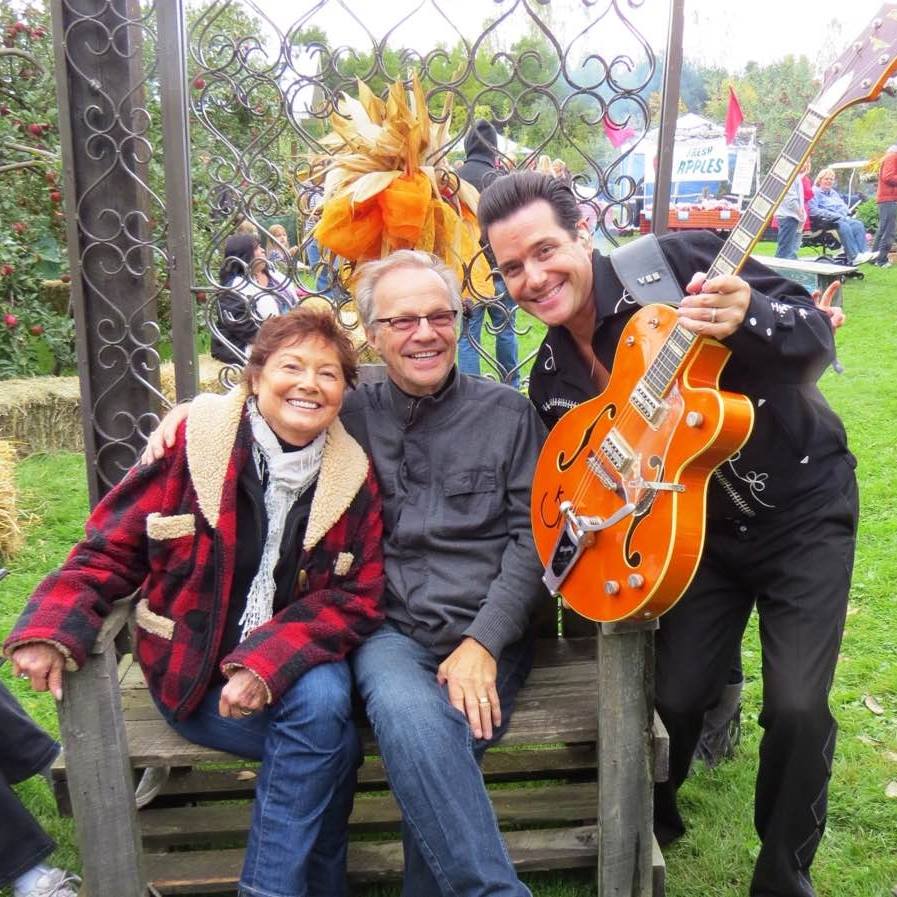
Karen, Bobby, and Robby
Photo courtesy of Ed Bohrer
I remember listening to ’60s pop star Bobby Vee at my Nana’s house in Independence, Minn. when I was younger. We’d dance around the living room and sing along to classics like “Take Good Care of My Baby” and “Rubber Ball.” Nana would tell me stories about how her cousin, Karen, set her heart on Bobby Vee in high school and ended up marrying him, just like she had always hoped. “She chased him and he caught her,” she’d say, laughing at her cousin’s laudable persistence and confidence in their future.
I never had the pleasure of meeting Bobby Vee, although I always knew about him and grew up hearing his music. I distinctly remember learning about the onset of his Alzheimer’s at a family gathering a few years ago and like the rest of my family, my heart broke for Bobby and the Vellines. My heart was further tugged on Monday, October 24, when I heard from my mom that Bobby Vee’s bout with Alzheimer’s had ended—surrounded by loved ones, Bobby Vee passed away at a memory care center in Rogers, Minn.
It’s beautiful to see the world acknowledge Bobby Vee’s success and musical history. Los Angeles Times, The New York Times, Rolling Stone, Star Tribune, and numerous other publications have written about Bobby Vee’s passing and musicians and fans all around the world have offered condolences to his family. “He is one of the most genuine, kind, down to earth guys I have ever met,” Nana told me last Friday night.
I’m pretty sure it was providence that just five days after Bobby Vee’s passing, I was able to see Robby Vee and his Rock & Roll Caravan perform at Billy’s Pub in Rockford, Minn. I went with Nana and my aunt; the whole night was a lively celebration of music, family, and old memories. Robert Velline is Bobby Vee’s youngest son and is quite popular in the rockabilly music genre (he was inducted into the Rockabilly Hall of Fame, joining his father who was inducted in 2011) and he covers his dad’s music, both as a tribute to his father and a celebration of Robby’s own musical heritage. For the past year, he has been an artist representative for the Alzheimer’s Foundation of America and is donating all the proceeds from his newest album “Blue Moon Blue” to AFA in honor of his father.
Robby came over and talked with us before the show. He gave hugs to Nana and my aunt and we were able to offer our condolences to his family and talk with him about his dad.
“We tried to give my dad the gift of normalcy,” Robby said about how his family dealt with his dad’s diagnosis. “We didn’t want the disease to dictate how he would spend his time. We wanted to have as much family time as possible. My sister Jenny and I would have family Sundays on her farm in Buffalo, Minn., where my dad could spend time with his grandkids. We’d cook dinner, spend time with the horses, and give my dad rides in his ’65 mustang. Those Sundays became like a ritual for us. My dad and I would also listen to old vinyl records together and sing together. I’d often play my records in the car and he recognized them and his eyes would light up. He couldn’t speak but he pointed at me with a knowing smile. He knew they were mine.”
We talked a little bit about Bobby Vee’s love for music and Nana brought up a story she remembered from the last time Karen and Bobby came to Billy’s Pub to see Robby perform. “He couldn’t talk at that point [because of his Alzheimer’s], but oh, you should have seen his face when your band started to play and you started to sing. He was snapping his fingers and swaying along…he lost a lot of things but he never lost the music. He never lost the music.”
Bobby Vee will be remembered by many as an extraordinary musician (Bob Dylan called him “the most meaningful person I’ve ever been on stage with”) and a wonderfully kind man who put his family first and worked hard to share his love of music with the world. “The best way to describe my dad’s life is by pulling from some of his own song lyrics,” Robby said. “‘If when your life is over, and you can smile at where you’ve been, you’ve accomplished all that matters in the end.’ Even when my dad couldn’t speak, he could always communicate with us with his smile. He had his smile up until the very end.”








